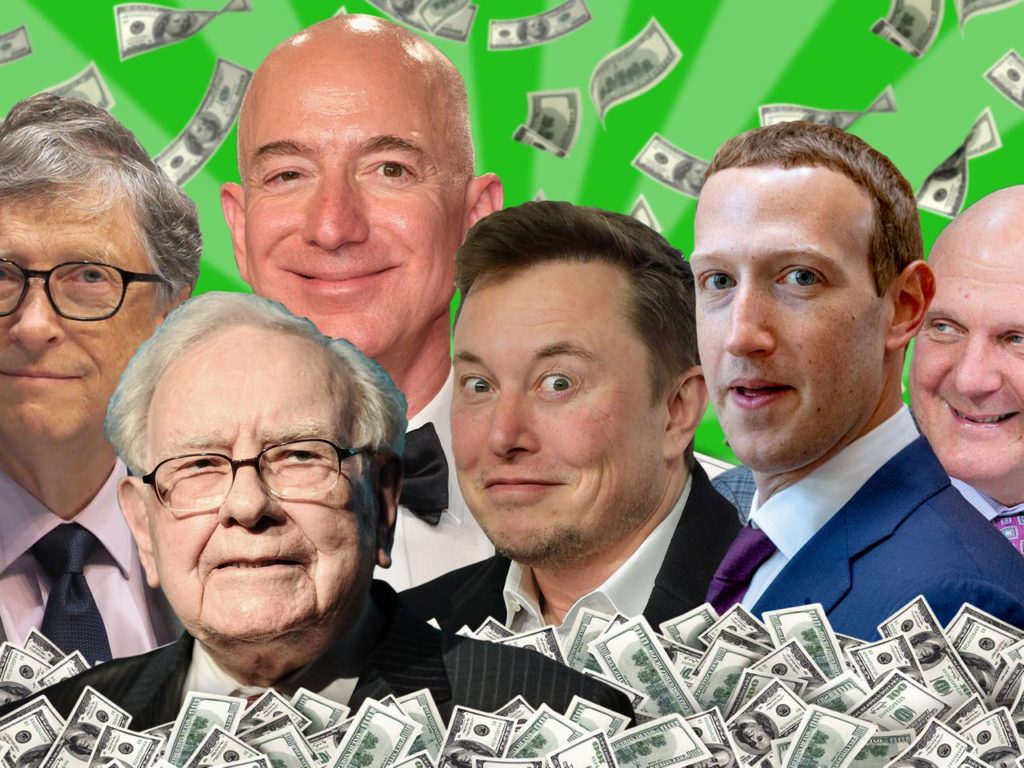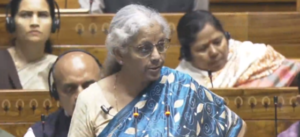❈ ❈ ❈
Billionaires – Pandemic Edition
David Ruccio
2019 was a very good year for the world’s wealthiest individuals. The normal workings of global capitalism created both more billionaires and more combined wealth owned by those billionaires.
According to Wealth-X, which claims to “have developed the world’s most extensive collection of records on wealthy individuals and produce unparalleled data analysis to help our clients uncover, understand, and engage their target audience, as well as mitigate risk,” the size of the global billionaire population increased strongly in 2019, rising by 8.5 percent to 2,825 individuals, while their combined wealth increased by 10.3 percent to $9.4 trillion.
To put that into perspective, the world’s real Gross Domestic Product grew by only 2.9 percent (International Monetary Fund) in 2019—while the value of global equities, which is key to billionaires’ wealth, soared by more than 25 percent (MSCI World Index).
The United States still leads the list of the world’s billionaire population and their wealth. In 2019, the number of American billionaires rose by almost 12 percent to 788 individuals, accounting for 28 percent of the global billionaire population (China has the next highest share at 12 percent). Cumulative billionaire wealth in the United States increased by 14 percent to $3.4 trillion, more than the combined net worth of the next eight highest-ranked countries and equivalent to a 36 percent share of global billionaire wealth.
What about the novel coronavirus pandemic?
According to Bloomberg, only two of the world’s 10 richest people have seen their wealth decline in 2020: luxury mogul Bernard Arnault and Berkshire Hathaway Inc.’s Warren Buffett. Everyone else, whose wealth is tied to technology holdings (except for Mukesh Ambani, the Indian billionaire who chairs and runs oil and gas giant Reliance Industries), has seen their individual and collective wealth increase—none more so than Jeff Bezos (the Amazon.com Inc. founder who has seen his net worth soar by $63.6 billion this year) and Elon Musk (whose net worth has more than doubled to $69.7 billion on the back of surging Tesla Inc shares).
On a global level, billionaires tied to technology businesses have outperformed all others, especially those whose wealth is tied to the automotive, shipping, media, textiles and apparel, and aerospace (less so defense) industries. They, of course, are the ones who most want to see a quick solution to the pandemic and a reopening of economic activity around the world.
In general terms, wealthier billionaires are more exposed to the ebbs and flows of the stock market, while those at lower tiers tend to have more of their wealth in private holdings, likely to be their primary business. For example, those in the two highest billionaire wealth tiers—above $10 billion— hold between almost half and more than three-quarters of their assets in public holdings. These individuals have withstood significant volatility in their wealth as stock markets first fell considerably and then rebounded equally dramatically—this past Friday, to a new record high in the United States—since the beginning of the pandemic.
So, what are the world’s billionaires, in the United States and around the globe, doing with their wealth in the midst of the pandemic? We know they’re not particularly worried with the same problems as their predecessors, the Robber Barons, whose enormous economic power in the United States created a fierce counter-reaction, in militant labor unrest and the adoption of reforms that once seemed radical, like the Sherman Antitrust Act and a federal income tax.
At least so far. . .
Instead, according to Wealth-X, they are
“working with their wealth advisors and planners to ensure their financial holdings and wealth plans (whether concerned with investment diversification, wealth transfer or philanthropic aims) remain up to date and in the best possible state given the evolving global situation.”
They’re also concerned about their own safety and new forms of luxury consumption. According to the Wealth-X Global Luxury Outlook 2020. “The wealthy’s mindset around what luxury is has changed—their priorities have shifted towards their families,” Jaclyn Sienna India, CEO of luxury travel company Sienna Charles, said in the report.
“Luxury now includes a second passport, access to healthcare and the freedom to go when and where they feel safe and secure.”
“Quite a few wealthy people are looking for exclusive safe havens in the form of second homes—safety has become a priority for them,” Alistair Brown, CEO of Alistair Brown International Real Estate.
“But with this purchase, they expect access to established locations often via residency and additional passports as well as access to medical help.”
Additionally, the wealthy have become increasingly accustomed to purchasing luxury goods online since the pandemic, as high-end brands expand their digital offerings, the report said.
“The wealthy continue to value luxury as they did prior to COVID-19. However, the way they buy luxury has changed, with more having moved to making their purchases online,” Winston Chesterfield, principal of luxury watch company Barton.
Meanwhile, what is everyone else supposed to do? Well, they have to stay as safe as they can at home and on the job—as they are subjected to the second or third wave of the pandemic—and try to obtain sufficient food, remain in their shelter while not being able to keep up with their rents and mortgages, and pay for their healthcare—in the midst of widespread pay cuts and soaring unemployment.
And, perhaps, begin to sharpen the twenty-first century equivalent of pitchforks. . .
(David Ruccio is currently Professor of Economics “at large” as well as a member of the Higgins Labor Studies Program and Faculty Fellow of the Joan B. Kroc Institute for International Peace Studies.)
❈ ❈ ❈
It’s Time for a Pandemic Wealth Tax on Billionaires’ Windfall Gains
Chuck Collins and Frank Clemente
Nothing symbolizes the inequality of sacrifice during the COVID-19 pandemic more than watching a few hundred billionaires gain while everyone else struggles through job losses, debilitating illness, or death.
Hundreds of thousands of Americans have died from COVID-19 and over 32 million have lost their jobs. U.S. households lost an estimated $6.5 trillion in wealth during the first quarter of 2020 alone.
It is time to levy an emergency wealth tax on billionaire profiteers and direct the funds to offset the cost of the nation’s health-care costs.
But billionaire wealth is surging. Since March 18, the beginning of the pandemic lockdown, the 467 U.S. billionaires have seen their wealth increase by over $730 billion, or 30%, according to an analysis of Forbes data by Americans for Tax Fairness and the Institute for Policy Studies.
The Fed has used emergency measures to prop up the economy that reversed the stock-market SPX, +0.84% crash caused by the pandemic, even as the rest of the economy falters. The biggest beneficiaries have been the billionaire class, which keeps on growing wealthier.
It is time to levy an emergency wealth tax on billionaire profiteers and direct the funds to offset the cost of the nation’s health-care costs.
Independent Vermont Sen. Bernie Sanders—backed by Democratic Sens. Kirsten Gillibrand of New York and Ed Markey of Massachusetts—has introduced the Make Billionaires Pay Act to recapture over half the extreme wealth gains made by billionaires during the pandemic. The bill proposes a one-time, 60% tax exclusively on billionaires’ gains between March 18 and the end of this year. It would raise about $420 billion, based on the increased wealth of the country’s billionaires as of Aug. 5.
Sanders proposes directing funds to Medicare to pay all out-of-pocket health-care expenses for uninsured and underinsured households over the next year, including prescription-drug costs. That would “guarantee health care as a right to all for an entire year,” said Sanders in a press statement.
Of course, other members of Congress might have their own ideas for how to spend $420 billion—including putting it toward helping state governments provide public services, maintaining those weekly $600 expanded unemployment payments, or paying out another round of $1,200 stimulus checks, all of which the House-passed Heroes Act would do.
Even with the new tax, billionaires would still have an estimated $310 billion in gains during the worst economic downturn since the Great Depression.
Amazon AMZN, +1.34% founder Jeff Bezos, whose wealth has increased a stunning 63% during the pandemic, is now worth an estimated $184 billion. Under the emergency pandemic wealth tax, Bezos would pay an estimated one-time tax of $42.8 billion. After the tax, Bezos would remain the richest person on the planet, with over $140 billion.
Elon Musk, the CEO of Tesla TSLA, -2.94%, has seen his wealth nearly triple during the pandemic to $70 billion. He would pay an estimated one-time wealth tax of $27.3 billion and would be 75% richer than he was five months ago. Facebook FB, +2.52% co-founder Mark Zuckerberg, who is worth over $88 billion, would pay an estimated one-time wealth tax of $22.1 billion. His wealth would be 28% higher than on March 18.
COVID-19 has caused an unprecedented health and economic crisis that no one should be excessively profiting from. Yet many billionaires are making huge hauls during a time of suffering and sacrifice.
In the past, our leaders took action to curb such profiteering in times of crisis. During World War II, Sen. Harry Truman held congressional hearings on war profiteering, exposing the ways some corporations grabbed profits during wartime sacrifice. Under President Dwight Eisenhower, the U.S. levied an excess profits tax on companies profiteering during the Korean War.
Today, the choice is stark: Do we enable 500 or so billionaires to further concentrate wealth and power during a pandemic, or do we tax the gains of these billionaires to improve the health and welfare of our country?
How we face this extraordinary inequality is the ultimate test of what kind of country we are and what we will become.
(Chuck Collins directs the Inequality Program at the Institute for Policy Studies. Frank Clemente is the executive director of Americans for Tax Fairness.)




